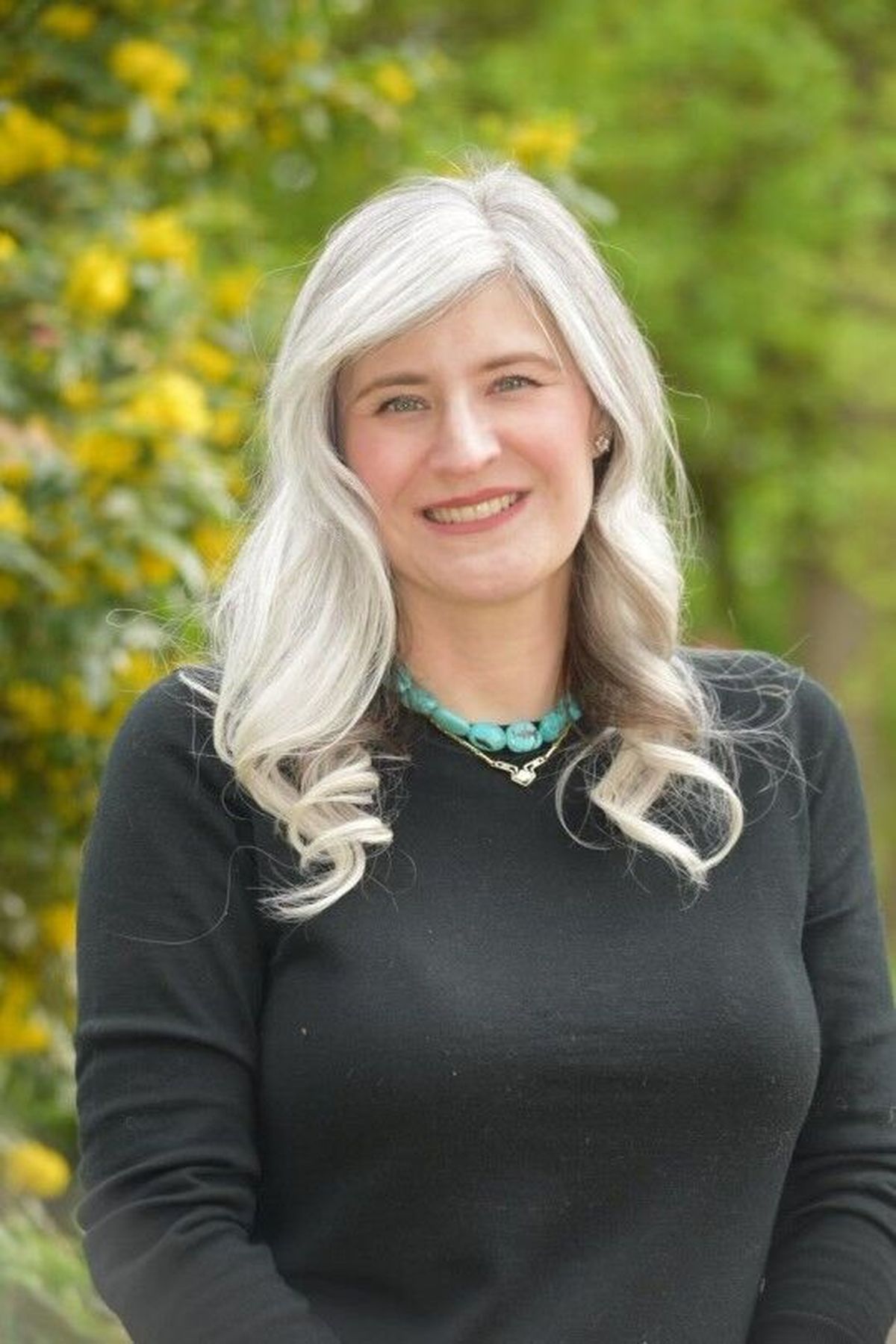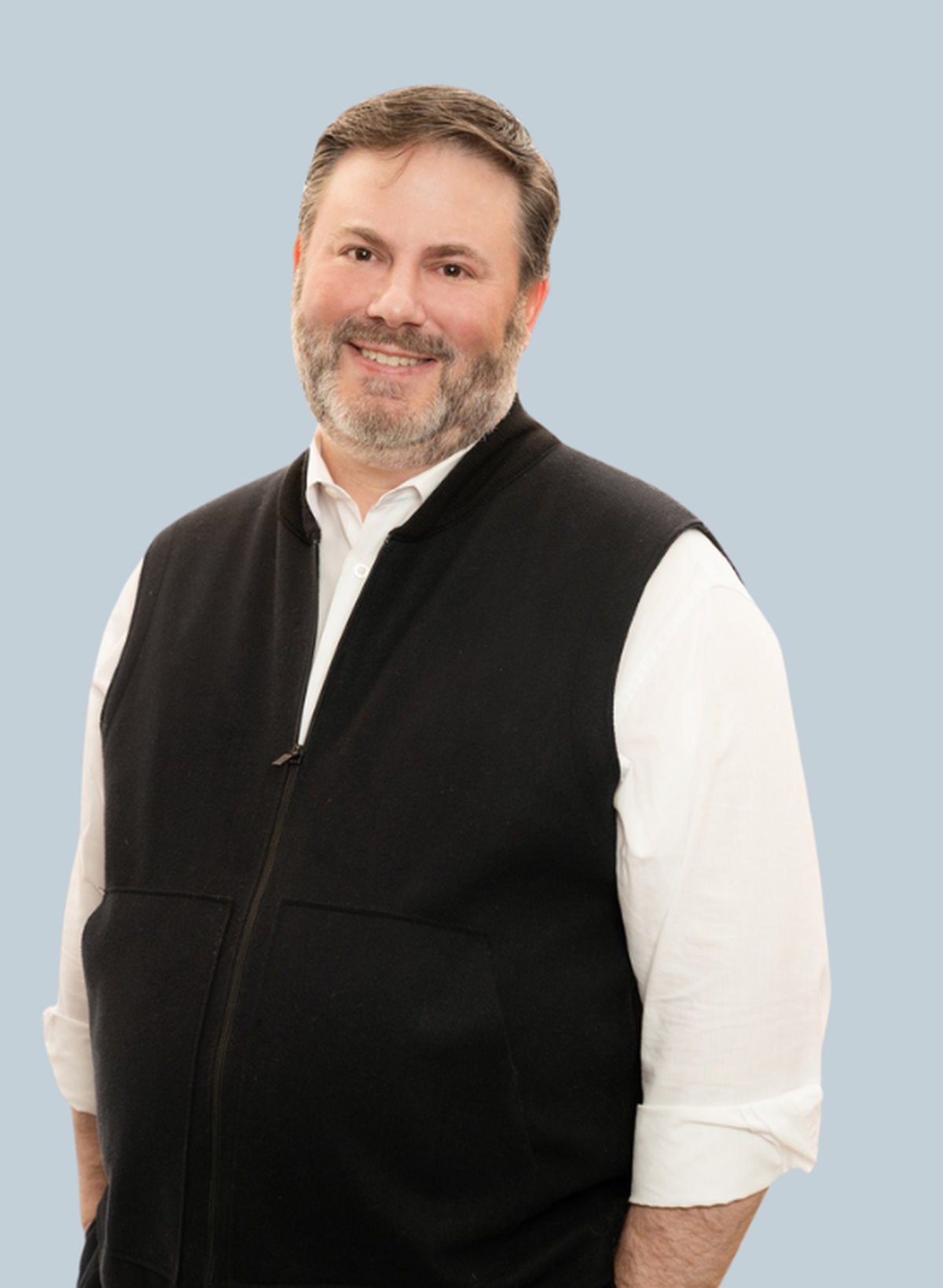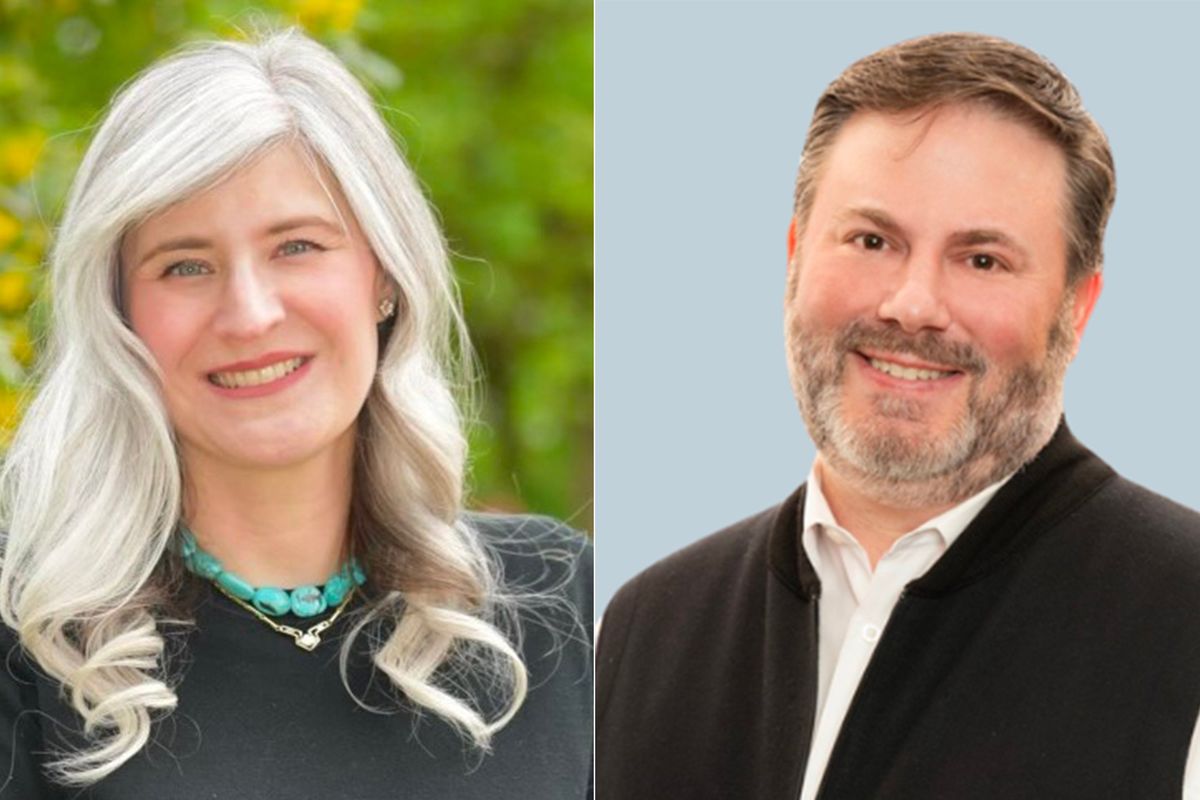Experience at center of Spokane County judicial race between incumbent Marla Polin, challenger Brandon Casey
Spokane County Superior Court Judge Marla Polin, left, faces attorney Brandon Casey in the Nov. 5, 2024 election.
Both candidates for Spokane County Superior Court Judge Position 8 say they have the best work experience for the job.
Judge Marla Polin spent decades representing sex offenders in civil commitment trials after a stint as a criminal defense attorney. She was appointed to the Superior Court bench by Gov. Jay Inslee in 2022 and has since presided over a variety of cases.
Challenger Brandon Casey is a lifelong Spokane resident who completed the law clerk program, an alternative to law school, and worked with his father at their family law firm, Casey Law, for decades before taking over the practice in 2017. Casey primarily handles civil trials throughout the state.
Casey is running because he believes there’s a lack of civil experience on the bench and that judges could do more to make the court more efficient.
“I think there could be more leadership in the court,” Casey said. “Coming from a place of private practice, where I live or die based on running efficiently, I think … that we need more experience in the court from that perspective.”
Experience
Casey said he chose to run against Polin, specifically over other judges up for re-election, because she doesn’t have the breadth of experience he would like to see on the court. He argued that most appointed judges previously served in public interest law positions like prosecutors or public defenders and that expertise in civil law is important to the diversity of the bench.
Polin’s experience lies largely in civil commitments which are a niche area of law, he argued.
Casey’s practice has been mostly civil trial work. He argued having to manage complex cases with lots of documents and witnesses. His work also has given him experience in the jury selection process.
Polin pushed back on Casey’s characterization of her experience.
“The area of law that I practiced in is actually considered complex civil litigation,” Polin said. “I have picked numerous, numerous civil juries, and so I do have a tremendous amount of civil experience.”
The civil commitment cases Polin handled deal with an offender’s entire life history resulting in tens of thousands of pages of documents for each case, which she said she is comfortable managing.
Over the last two years, Polin said she has gained experience presiding over all types of cases as a judge. She is currently presiding family law judge.
“I mean you name it, I’ve really gotten to experience everything on the bench,” Polin said. “That is something that he simply cannot compete with.”
Efficiency
Most case types in Spokane courts face significant delays, especially civil and family law cases, Casey said.
He argues that his civil experience would allow him to move through those cases faster, along with a willingness to work extra hours, speed up discovery, and push for new systems to increase efficiency.
“That’s a problem you’re running into constitutional unnecessary delays in our court system,” Casey said. “We need leadership in this area, so people aren’t spending extra money on continuances.”
Casey mentioned an experience in Walla Walla that impressed him, where a judge held motion hearings early in the morning and late in the evening to make the trial move more quickly.
“I know that’s probably not comfortable for everyone but it got that trial done,” Casey said. “It got things accomplished, it reduced how much time the jury had to stay there and wait for the attorneys to do things.”
He would hope to emulate that strategy along with working hard off the bench to get decisions delivered far before the 90-day window given to judges.
Casey argued judges should be more transparent about their schedules, beyond the already public dockets, so people know what they’re doing.
He also wants the 13 elected judges to work together more to create standardized systems and find solutions to delays.
“There are 13 people that can look towards a resolution on this,” Casey said. “Rather than being 13 silos, we can be a community that’s really trying to help Spokane community.”
Polin said she would like more modernization of the court but realistically judges are limited in what they can control.
When Polin owned her own practice, she was paper free, preferring to work on her laptop or iPad, she said. Her expectation was that she could institute a similar policy in her judicial department.
“One of the things I’ve learned from working now with government is there are a million layers of approval,” Polin said. “So as much as I personally would love to do that and I’ve requested it, it’s not going to happen, because you have to go through budget and planning right to be able to get the funds.”
She lauded Casey’s desire to work hard but said as someone doing the job it’s not realistic to hold early or late hearings.
“It’s also short -sighted to say, ‘I’ll stay late, I’ll get in early.’ Because as much as I would love to think the world revolves around the judge, it doesn’t,” Polin said. “There’s so many other people that are necessary to make our courthouse and our courtrooms efficient. They do not answer to me.”
She mentioned security staff, court clerks and other staff who make the courthouse run but don’t work directly for judges are unionized, and deserve a work-life balance.
While judges often work long hours and sign in from home to read documents or sign warrants, Polin said, it’s also important to have a healthy balance to make good decisions.
“I see this as a long -term commitment. This is not a race, right? It’s a marathon that you want to not burn out on,” Polin said. “So while sure, I can pull an all-nighter, I can stay real late get up real early for the week of your trial, it’s not realistic to expect that that’s going to be sustainable for the long run.”
One of the aspects Polin said she loves about her job is discussing new court decisions with her bench mates and keeping up on trends in the law. While the judges do work together, they are also their own individual elected officials, she said.
The presiding and assistant presiding judges are tasked with advocating for the bench broadly. Other judges serve on committees, like Polin’s position on the budget and planning committee, but beyond that their advocacy is limited.
“Other than that, though, I don’t know that the nonsenior judges who are not in those types of positions have really that much authority over those types of changes,” Polin said.
When it comes to transparency around her schedule, Polin encouraged the public to stop by her chambers if they have questions.
“We’re public servants,” she said. “You are welcome to come down and ask any question that you have.”
Endorsements
Casey is endorsed by the Spokane County Republican Party and has touted other Republican endorsements on campaign materials but that’s largely because they are the ones showing interest in his campaign, Casey said, not because he’s partisan.
An upcoming fundraiser hosted by attorney Matt Albrecht, touts appearances by Republican politicians Michael Baumgartner and Mike Padden. Casey said the fundraiser is in Spokane Valley, where the overwhelming majority of elected officials are Republicans.
Casey’s brother and fellow attorney, Marshall Casey, previously employed former Rep. Matt Shea, who was ousted from state House Republican leadership over allegations of domestic terrorism. Marshall Casey remains a Republican precinct committeeman.
Brandon Casey said that to his knowledge his brother no longer has a relationship with Shea and that he appreciates his brother’s support.
Casey said he will take help from everyone and hopes to talk to the county Democratic Party next month. Republicans have responded to his message of reducing delays to help maintain people’s constitutional rights more than people of other political persuasions, Casey said.
“That does feel like it is one-sided right now,” Casey said of the response to his message. “So these issues, I don’t think, are partisan whatsoever, that one particular party is more focused on making sure that this stuff is addressed, I’m not going to reject any kind of help.”
Casey said he frequently explains to constituents that the office is nonpartisan and why that’s so important to an impartial judiciary, while also touting his message of efficiency and a focus on the constitution.
Polin said she is proud of her endorsements including the Spokane Police Guild, the Spokane County Deputy Sheriff’s Association, the entire Superior Court bench along with local prosecutors and public defenders.
Nonpartisanship is key to the office, she said.
“We don’t talk about what my personal opinion is, because my personal opinion doesn’t matter,” Polin said. “As a judge, I’m promising to you and to the community, I will follow the law. Doesn’t matter if I like the law. Doesn’t matter if I like the litigant. I will follow the law.”


